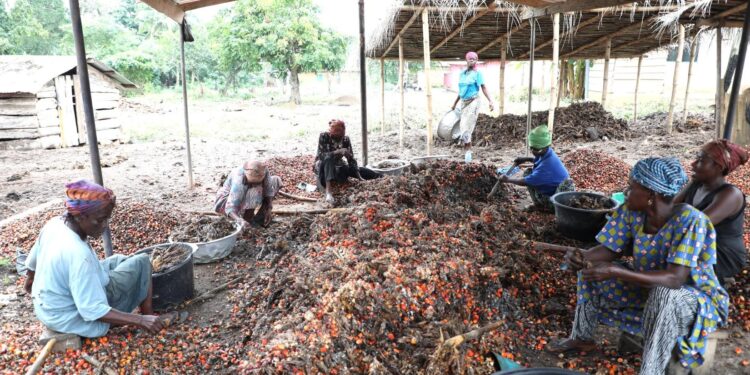The Chamber of Agribusiness Ghana has urged government to adopt a deliberate and research-driven approach to its plan to reduce the country’s palm oil import bill by $2 billion by the end of the year.
According to the Chamber, while the policy goal is achievable, it will require targeted innovation, comprehensive data collection, and an understanding of both domestic and international market dynamics.
“We need to be looking at what innovations we can bring on board. We need to focus on research and the broader dynamics,” the Chamber noted, pointing to lessons from Malaysia, which is facing new challenges in palm production due to environmental constraints and food security concerns.
Speaking to Joy Business, The Chief Executive of the Chamber of Agribusiness Ghana, Anthony Morrison stressed that palm oil is not only a vital domestic commodity but also a major industrial input with wide-ranging applications.
He noted “It is used in the production of biscuits, cosmetics such as lipsticks, aviation lubricants, and various household meals.”
The Chamber called for a clear definition of Ghana’s technical advantage in the sector, asking whether the focus should be on exports, industrial use, or domestic consumption.
“Palm is a major factor in several areas of our economy from manufacturing to commercial and household levels. We must balance the needs of industry with those of the domestic market,” the Chamber said.
Palm oil remains a significant agricultural commodity across West Africa, and the Chamber believes Ghana has the potential to become a leader in its sustainable production and processing.
Read Also: Ghana Declares War on Opioid Abuse With Education, Research Initiatives

























